第8章 THE COMMODITY(6)
Thus if we had all the equations in which the value of a yard of linen is exhaustively expressed,we could denote its exchange-value in the form of a series.This is in fact an infinite series,for the range of commodities can never be finally circumscribed but expands continuously.Since the exchange-value of one commodity is measured by the use-values of all other commodities,the exchange-values of all other commodities are on the contrary measured in terms of the use-value of the one commodity measured by them.[10]If the exchange-value of one yard of linen is expressed in 1/2lb.of tea,or 2lbs.of coffee,or 6yards of calico,or 8lbs.Of bread,etc.,it follows that coffee,tea,calico,bread,etc.,must be equal to one another in the proportion in which they are equal to linen,a third magnitude,linen thus serves as a common measure of their exchange-value.The exchange-value of any commodity considered as materialised universal labour-time,.e.,as a definite quantity of universal labour-time,is measured successively in terms of definite quantities of the use-values of all other commodities;and on the other hand the exchange-values of all other commodities are measured in the use-value of this one exclusive commodity.But any commodity considered as exchange-value is both the exclusive commodity which serves as the common measure of the exchange-values of all other commodities and on the other hand it is merely one commodity of the many commodities in the series in which the exchange-value of any other commodity is directly expressed.
The existing number of different types of commodities does not affect the value of a commodity.But whether the series of equations in which its exchange-value can be realised is longer or shorter depends on the greater or smaller variety of different commodities.The series of equations which express,say,the value of coffee shows the range of its exchangeability,the limits within which it functions as an exchange-value.
The exchange-value of a commodity as the objective expression of universal social labour-time finds its appropriate expression of equivalence in the infinite variety of use-values.
We have seen that the exchange-value of a commodity varies with the quantity of labour-time directly contained in it.Its realised exchange-value,that is its exchange-value expressed in the use-values of other commodities,must also depend on the degree to which the labour-time expended on the production of all other commodities varies.For example,if the labour-time necessary for the production of a bushel of wheat remained unchanged,while the labour-time needed for the production of all other commodities doubled,the exchange-value of a bushel of wheat in terms of its equivalents would have been halved.The result would actually be the same as if the labour-time required to produce a bushel of wheat had been halved and the labour-time required to produce all other commodities had remained unchanged.The value of commodities is determined by the amount of them which can be produced in a given labour-time.In order to examine what changes are liable to affect this proportion,let us take two commodities,A and B.First The labour-time required for the production of B is assumed to remain unchanged.
In this case the exchange-value of A expressed in terms of B falls or rises in direct proportion to the decrease or increase in the labour-time necessary for the production of A.Secondly .The labour-time necessary for the production of commodity A is assumed to remain unchanged.The exchange-value of commodity A in terms of B falls or rises in inverse proportion to the decrease or increase in the labour-time required to produce B.Thirdly .The labour-time required for the production of A and of B is assumed to decrease or increase at the same rate.The equation expressing the value of commodity A in terms of B remains unchanged in this case.If some factor were to cause the productivity of all types of labour to fall in equal degree,thus requiring the same proportion of additional labour for the production of all commodities,then the value of all commodities would rise,the actual expression of their exchange-value remaining unchanged,and the real wealth of society would decrease,since the production of the same quantity of use-values would require a larger amount of labour-time.Fourthly .The labour-time required for the production of both A and B is assumed to increase or decrease but in unequal degree,or else the labour-time required for the production of A is assumed to increase while that required for B decreases,or vice versa.All these cases can be simply reduced to the position where the labour-time required for the production of one commodity remains unchanged,while that required for the production of the other either increases or decreases.
The exchange-value of any commodity is expressed in terms of the use-value of any other commodity,either in whole units or in fractions of that use-value.
Every commodity as exchange-value can be just as easily divided as the labour-time contained in it.The equivalence of commodities is just as independent of the physical divisibility of their use-values as the summation of the exchange-values of commodities is unaffected by the changes which the use-values of the commodities may undergo in the course of their transformation into a single new commodity.